What Are the Long-Term Benefits of Cat Socialization?
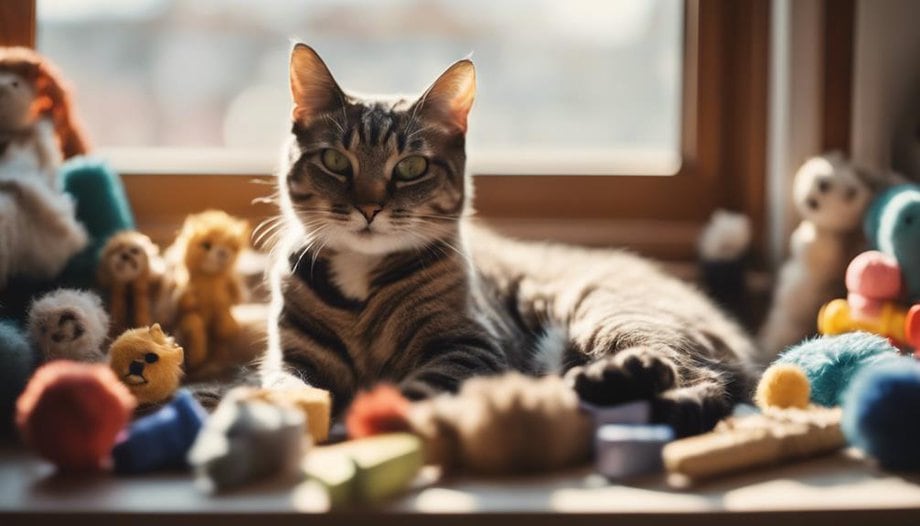
Socializing your cat from a young age can have long-term benefits for both their behavior and your relationship with them. Cats that are well-socialized are more likely to be friendly, confident, and well-adjusted. They are also less likely to exhibit problem behaviors such as aggression, fearfulness, or excessive shyness.
By exposing your cat to a variety of people, animals, and environments early on, you can help them become comfortable and confident in different situations. This can make it easier for them to adapt to new experiences and environments throughout their lives. It can also strengthen the bond between you and your cat, as they learn to trust and feel secure around you.
Regular socialization can also help prevent behavior problems that may arise from fear, anxiety, or lack of exposure to different stimuli. Overall, taking the time to socialize your cat can lead to a happier, healthier, and more well-adjusted pet.
Improved Behavior and Reduced Aggression
Cat socialization has been shown to lead to improved behavior and reduced aggression in felines. Aggression management and behavior modification are essential aspects of cat socialization. Through proper socialization techniques and training methods, cats can learn to interact positively with other animals and humans, decreasing aggressive behaviors.
Behavior modification plays a crucial role in shaping a cat's responses to various stimuli. By exposing cats to different social situations in a controlled environment, they can learn appropriate behaviors and responses. Positive reinforcement during socialization training can help in reducing aggressive tendencies and promoting desirable behaviors in cats.
Socialization techniques like gradual exposure to new environments, people, and animals can help in desensitizing cats to potential triggers of aggression. Training methods that focus on rewarding calm and friendly behavior can further reinforce positive social interactions in cats. Overall, cat socialization is a valuable tool for improving behavior and reducing aggression, leading to happier and more well-adjusted feline companions.
Enhanced Social Interactions With Humans
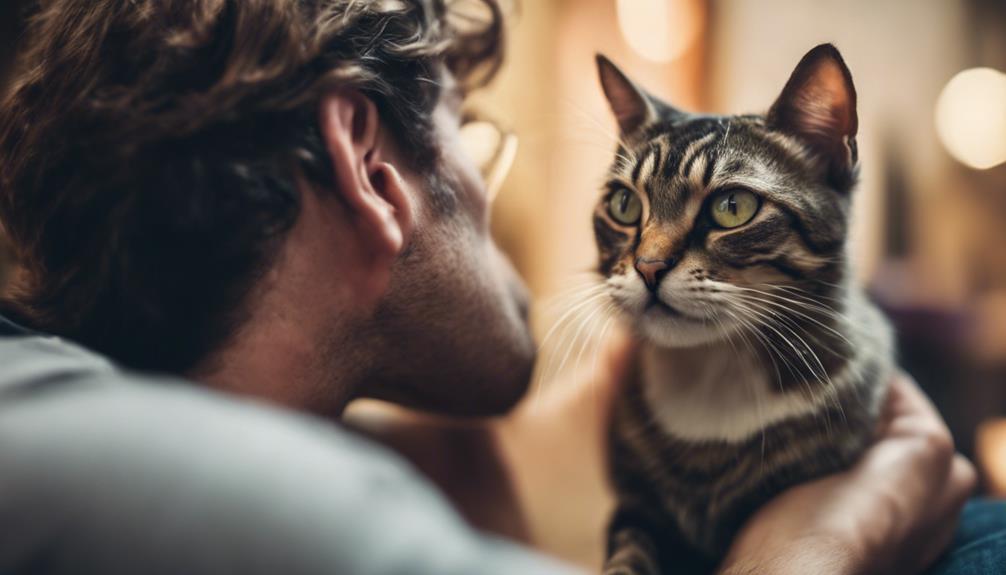
Cats that are well-socialized tend to exhibit improved bonding through regular interactions with humans.
This increased bond can lead to enhanced social interactions, where the cat shows more comfort and ease around people.
Through consistent positive experiences, cats can develop a trusting relationship with their human companions, fostering a deeper connection over time.
Improved Bonding Through Interaction
Enhancing social interactions with humans can significantly improve the bonding experience between felines and their caregivers. Through increased trust and playful interactions, cats develop a deeper connection with their human companions.
Trust is a fundamental component of any relationship, including that between a cat and its owner. By engaging in interactive play and positive social encounters, cats learn to trust and feel more secure in their environment. This trust is essential for fostering a strong bond built on mutual understanding and companionship.
Playful interactions, such as engaging in interactive toys or spending quality time together, create positive associations and strengthen the emotional connection between cats and their caregivers. These interactions not only enhance the quality of life for the cat but also deepen the bond between the cat and its human companions.
Increased Comfort Around People
Developing a sense of comfort around people can be facilitated through consistent and positive social interactions for felines. Cats, like humans, benefit from trust-building and positive reinforcement to enhance their social skills and gradually expose them to new experiences.
- Trust Building: Establishing trust through gentle interactions helps cats feel secure and comfortable around humans.
- Positive Reinforcement: Rewarding desirable behaviors with treats or affection reinforces positive associations with people.
- Social Skills Development: Regular socialization helps cats learn how to interact with different individuals in a calm and friendly manner.
- Gradual Exposure: Introducing cats slowly to new people and environments can reduce anxiety and build their confidence over time.
Increased Confidence and Reduced Fearfulness
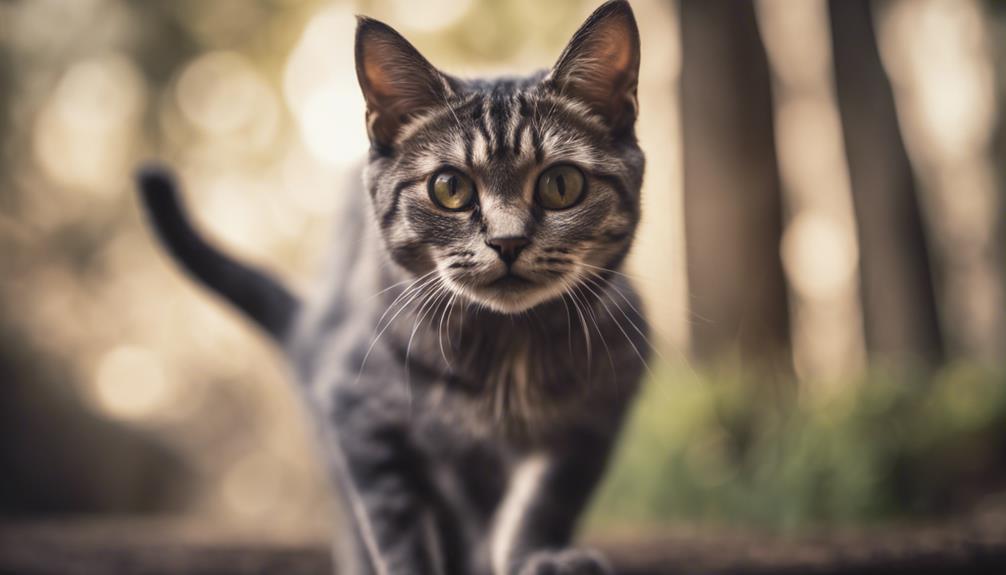
Socializing cats from a young age can result in a notable increase in their confidence levels and a reduction in fearfulness towards new experiences. This early exposure to different people, animals, and environments helps cats develop increased playfulness and decreased shyness. When cats are socialized properly, they become more self-assured and less likely to exhibit fearful behaviors such as hiding or aggressive reactions when faced with unfamiliar situations.
Increased confidence in socialized cats can lead to improved interactions with humans and other animals. They're more likely to approach new people with curiosity rather than fear, making them more adaptable to various social settings. Additionally, reduced fearfulness allows cats to explore their environment more freely, leading to a healthier and more enriched life.
Better Adaptability to New Environments
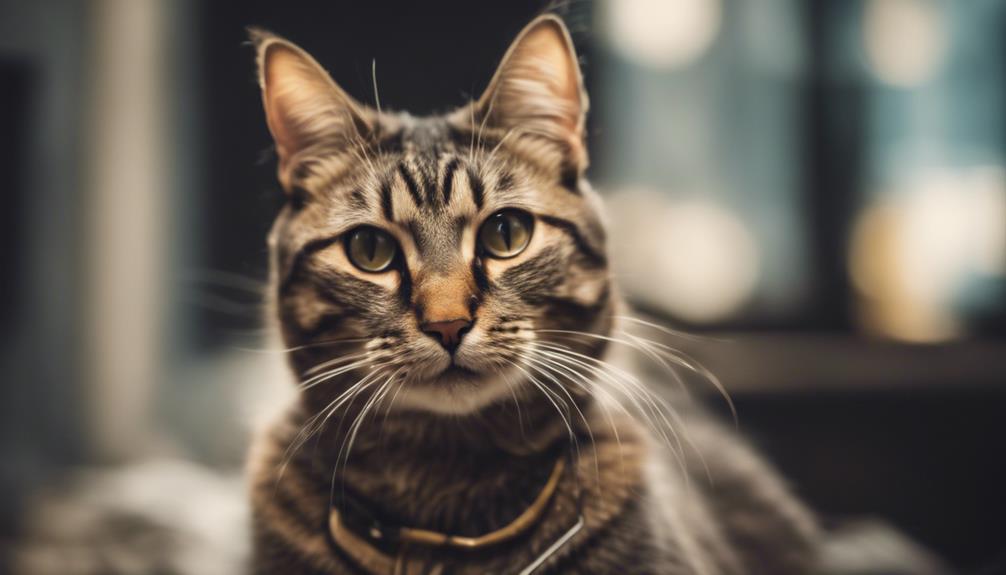
Cats that have been socialized tend to exhibit enhanced environment adjustment skills, enabling them to acclimate more smoothly to new surroundings.
This adaptability trait allows socialized cats to navigate changes in their living conditions with greater ease and reduced stress.
Through early socialization, cats develop the ability to transition effectively, leading to better overall well-being in varied environments.
Environment Adjustment Skills
Having been socialized, cats exhibit enhanced adaptability to new environments, demonstrating improved environmental adjustment skills. This heightened ability allows them to acclimate more easily to changes, making transitions smoother for both the cat and its owner. Here are some ways in which cat socialization contributes to their environment adjustment skills:
- Reduced Stress Levels: Socialized cats are less likely to experience heightened stress when faced with new surroundings.
- Faster Behavioral Adaptation: They quickly adjust their behaviors to suit the new environment.
- Improved Confidence: Socialized cats show more confidence in exploring and navigating unfamiliar spaces.
- Enhanced Problem-Solving Skills: They demonstrate better problem-solving abilities when encountering challenges in new environments.
Smooth Transition Abilities
Demonstrating heightened adaptability, socialized cats exhibit smoother transitions when introduced to new environments. Their superior transition skills, acquired through socialization benefits, enable them to adjust more easily to unfamiliar surroundings.
Cats that have been well-socialized display a remarkable ability to navigate changes in their environment with minimal stress or anxiety. This smooth adjustment is a direct result of their developed social interaction skills, which allow them to feel more secure and confident when faced with new situations.
Stronger Bond Between Cat and Owner
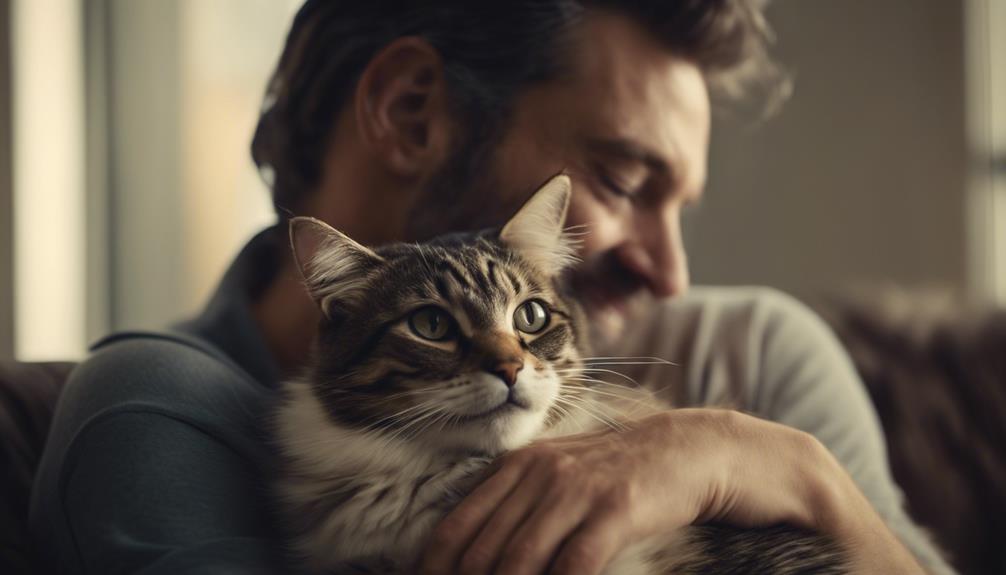
A well-socialized cat tends to form a deeper emotional connection with their human companion over time. This bond is strengthened through various interactions and shared experiences.
Here are some ways in which cat socialization contributes to a stronger bond between the cat and its owner:
- Enhanced Trust: Through trust building and positive reinforcement techniques, a cat learns to rely on its owner for care and security.
- Improved Communication: Socialization fosters mutual understanding and enhances communication skills between the cat and its owner, allowing for a more harmonious relationship.
- Increased Affection: A well-socialized cat is more likely to show affection towards its owner, seeking out physical contact and companionship.
- Greater Companionship: Socialized cats are often more attentive and responsive to their owners, leading to a deeper sense of companionship and connection.
Reduced Stress and Anxiety Levels
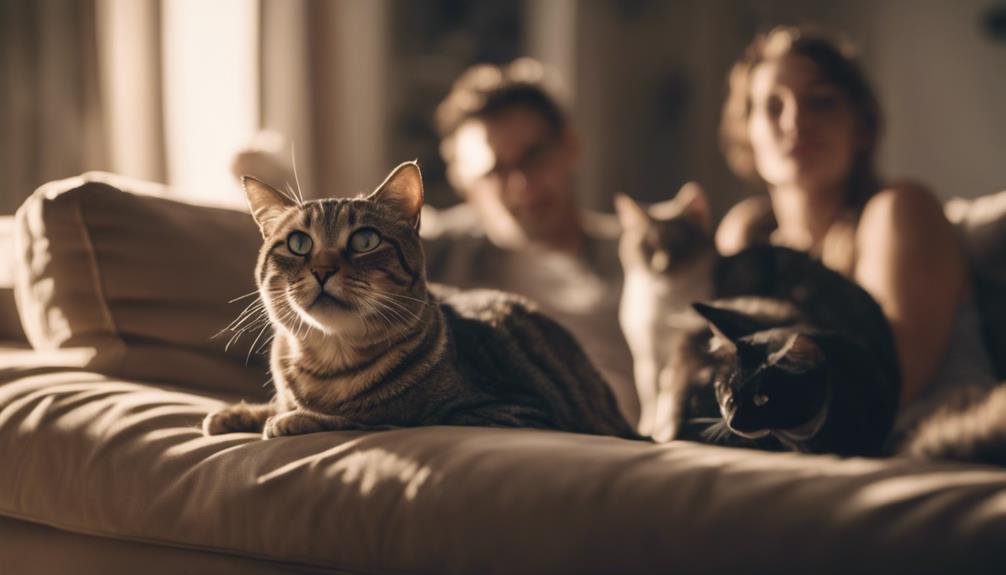
Cat socialization plays a crucial role in reducing stress and anxiety levels in feline companions. When cats are socialized from a young age, they develop a sense of security and familiarity with their environment, leading to lower stress levels. This trust building process between cats and their owners or other animals can have significant health benefits for the feline. Research has shown that socialized cats exhibit reduced levels of cortisol, the stress hormone, in their bodies compared to unsocialized cats. This decrease in stress hormones contributes to overall better health and well-being in cats.
Furthermore, socialized cats are more likely to exhibit calm and relaxed behaviors in various situations, further aiding in stress reduction. The bond formed through socialization provides cats with a sense of security and comfort, leading to a decrease in anxiety levels. By engaging in positive interactions and experiences with humans and other animals, cats learn to navigate their surroundings with confidence, ultimately resulting in a happier and healthier feline companion.
Healthier Mental and Emotional Well-Being

Socialization of cats contributes to their healthier mental and emotional well-being by fostering a sense of security and reducing stress levels. When cats are socialized from a young age, they're more likely to exhibit emotional stability and improved mental health throughout their lives.
Here are four key ways cat socialization enhances their mental and emotional well-being:
- Enhanced Emotional Stability: Socialized cats are better equipped to handle changes in their environment, leading to reduced anxiety and fear responses.
- Improved Mental Health: Regular interactions with humans and other animals can positively impact a cat's cognitive function and overall mental well-being.
- Psychological Benefits: Socialized cats are more likely to exhibit positive behaviors such as increased playfulness and curiosity, leading to a happier and more content feline companion.
- Stronger Social Connections: Cats that are well-socialized tend to form stronger bonds with their human caregivers and other pets, fostering a sense of belonging and companionship.
Frequently Asked Questions
Can Socialization Help Prevent Cats From Developing Separation Anxiety?
Socialization techniques can help prevent cats from developing separation anxiety. By engaging in positive interactions and exposure to different environments, cats can experience behavioral improvements and reductions in aggression, leading to a happier and more well-adjusted pet.
How Can Socialization Impact a Cat's Ability to Interact With Other Pets in the Household?
Socialization can improve a cat's ability to interact with other pets in the household by fostering positive relationships and facilitating behavior modification. This leads to harmonious coexistence and reduced conflicts among pets.
Are There Specific Techniques or Methods for Socializing Older Cats Who May Not Have Been Socialized as Kittens?
When socializing older cats who missed kittenhood socialization, behavior modification through positive reinforcement, trust building, and gradual exposure are effective techniques. These methods help foster healthy interactions and improve the cat's overall well-being.
Can Socialization Help Cats Overcome Past Trauma or Abuse?
Socialization can aid cats in overcoming past trauma or abuse by facilitating the healing process and fostering trust building. Consistent positive interactions and patience are key in helping these cats regain confidence and security.
How Long Does It Typically Take to See the Benefits of Cat Socialization in Terms of Improved Behavior and Reduced Aggression?
In cats, the timeline for socialization's effects on behavior improvement and reduced aggression varies. Typically, noticeable changes can occur within a few weeks to a few months, showcasing the effectiveness of socialization in enhancing feline well-being.











